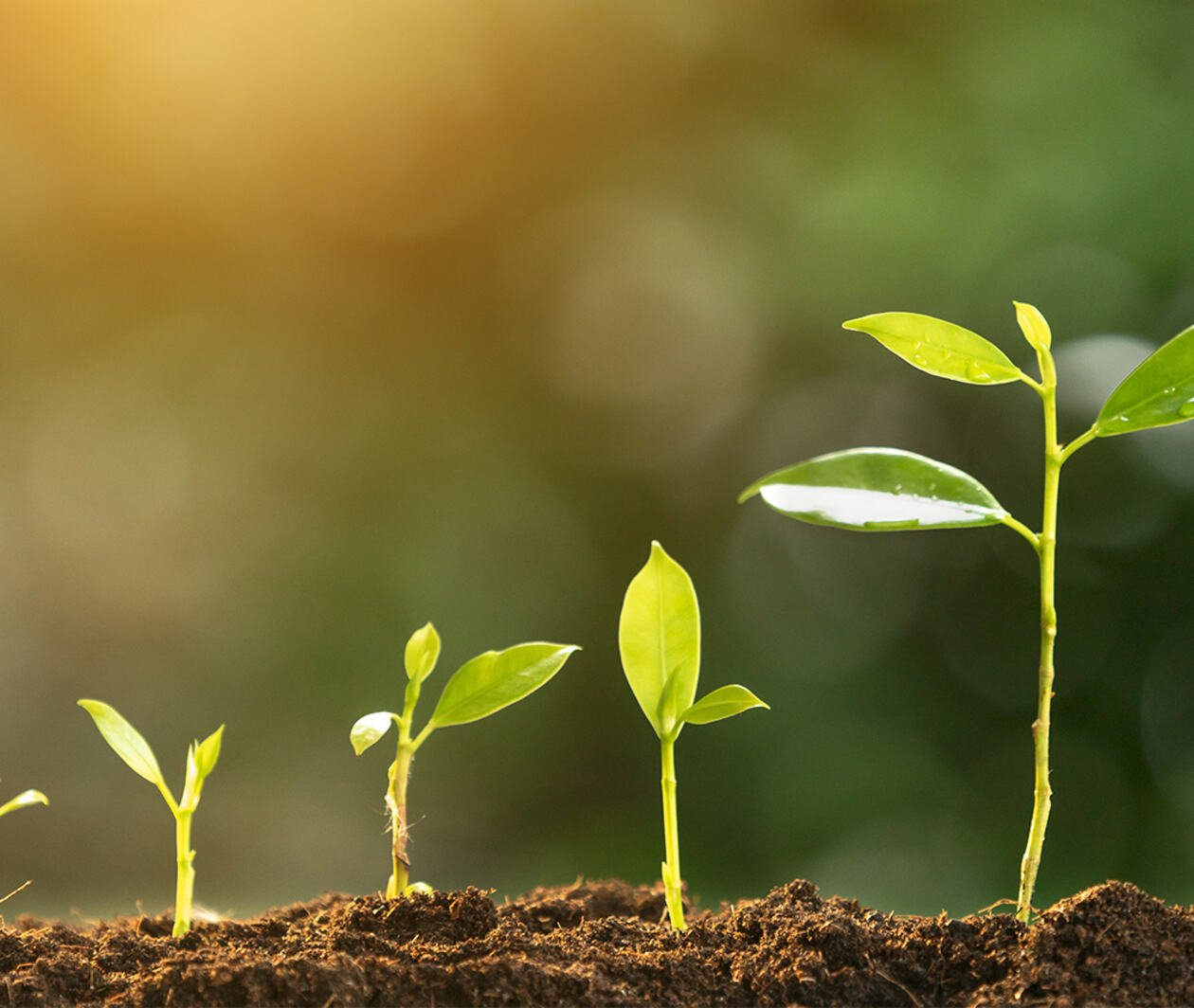This course is part of the Life on Mars, Earth and Beyond with Dr Louisa Preston ExpertTrack
Earth and Life
From the beginning to where we are now, explore the formation of the Earth and the history of life on the blue planet.

Duration
3 weeksWeekly study
3 hours100% online
How it worksIncluded in an ExpertTrack
Course 2 of 5
Earth and Life
Explore the theories on how life on Earth came to be
The mystery of life’s origins on Earth has been slowly chipped away as scientists discover more and more evidence to support their theories.
On this three-week course, astrobiologist Dr Louisa Preston will take you on a trip through the history of Earth, from dust to a planet, exploring the theories and events that shape the story of life.
Travel back to the formation of the Earth and witness the Late Heavy Bombardment
Did life start at the bottom of the ocean? Deep in the Earth’s clay? Or did it come from outer space?
Starting at the beginning, when our blue planet wasn’t so blue, you’ll explore stages of the Earth’s formation and the theories on how life began here. You’ll then look at the implications of the Late Heavy Bombardment, a hypothesised event in which asteroids collided with early terrestrial planets, including Earth.
How can you read the Earth’s timeline?
The geological record of the Earth holds many secrets of the planet’s history. From its past climate to the evolution of life, understanding geological processes is vital to understanding Earth.
You’ll investigate these processes and how they moulded the Earth, giving you a gateway into the way experts read Earth’s timeline. And, using your knowledge of the Earth’s composition and structure, you’ll apply your findings to other planets to better understand their environments.
Discover the journey of life on Earth, from the Cambrian Explosion to mass extinction events
According to some scientists, there have been at least five major extinction events in the Earth’s history.
This course will delve into these extinction-level events to look at how they’ve shaped life on Earth. You’ll also track the Cambrian Explosion, an event when simple life is believed to have diversified and complex organisms started appearing.
Syllabus
Week 1
The formation of the Earth
Welcome to the course
We will begin by building our planet from the ground up, exploring its violent early history and assessing the possibilities for where life may have first arisen.
From dust to a planet
How do you build a planet? Here we will look at how the Earth and Mars were built from a sea of gas and dust, and how these barren rocky bodies eventually became watery worlds.
The Late Heavy Bombardment
Here we'll learn about a violent period in Earth's history, a time when the inner planets of the Solar System were assaulted by space debris for hundreds of thousands of years, and what this meant for life.
The origins of life on the early Earth
Let’s explore how life might have arisen on the early Earth. There are many competing theories and we still don’t know exactly how, where or even when life first arose, but we have some very plausible ideas!
Weekly wrap-up
What a long journey for the Earth this week – from dust grains to a world beginning to spawn the chemistry for life! Here we'll recap some key concepts and look forward to next week, where we'll be exploring the Earth's structure.
Week 2
How the Earth works
Welcome to Week 2
This week we'll start to explore what the Earth is made of. We'll look beneath its crust, track how the continents have moved across its surface and learn how we are searching for signatures of life within the geological record.
What is the Earth made of?
Here we’ll explore how the Earth is layered with a solid and liquid core, convecting mantle and crust. We will also see how scientists study the inner workings of the Earth despite not being able to access them directly.
The Earth's movements
Now let's look at how the Earth moves and the impact this has on planetary habitability. Understanding the internal mechanics of the Earth is helping us to understand what's going on under the surface of Mars.
The geological record
Next we’ll learn about the geological record: the history of the Earth that helps us navigate our past. We'll also explore how we work out how old rocks are, and what signatures of life buried within the rock record look like.
Weekly wrap-up
Now that we know the structure of the Earth and can interpret the geological record, we will recap some useful concepts and see how this knowledge can help us to navigate the timings of the evolution of life on Earth.
Week 3
The history of life
Welcome to Week 3
The history of life on Earth is a fascinating tale with every conceivable character you can imagine. In this final week of the course, let’s meet our ancestors!
The earliest life
Let’s meet the oldest ancestor of all life alive today, LUCA, and explore the tree of life. We will also be introduced to our single-celled relatives and learn about the rise of oxygen on the Earth.
Multicellular life
Here we will see the consequences of rising oxygen levels on the Earth, for both life and the planet, and we’ll explore how life flourished in this new oxygen-laden environment.
Mass extinctions
Mass extinctions are catastrophic events that have occurred a few times in Earth’s history, wiping out nearly all organisms on the planet and changing the course of life forever. Are we at risk of an extinction-level event today?
Course wrap-up
This week we have covered planetary formation, the origins and evolution of life and extinctions. Now it is time to wrap-up and consolidate everything we have learnt in this course.
Prove you're job ready
Highlight the new, job-relevant skills you’ve gained and supplement existing qualifications with a hard-earned, industry-specific digital certificate – plus one for every course within your ExpertTrack.
- Learn the latest in your chosen industry or subject.
- Complete each course and pass assessments.
- Receive certificates validated by the educating organisation.
- Impress employers with learning outcomes you can add to your CV.
- Make your career dreams a reality.
Download a PDF
Learning on this course
On every step of the course you can meet other learners, share your ideas and join in with active discussions in the comments.
What will you achieve?
By the end of the course, you‘ll be able to...
- Explore the key stages of the Earth's formation
- Describe the implications of the Late Heavy Bombardment for life on Earth
- Summarise the different theories as to how life arose on the Earth
- Investigate geological process that shape the Earth
- Explain how the geological record can help read Earth's timeline.
- Describe the oxygen revolution that enabled us to come to exist
- Summarise the history of life from the Cambrian Explosion to today
- Investigate extinction-level events on earth and other planets
Who is the course for?
This course is designed for anyone interested in the fundamentals of astrobiology, particularly life on Earth.
It will be especially useful to university applicants looking to identify areas that they’d like to specialise in and STEM teachers looking to bring science to life for their students.
Who will you learn with?
I am an astrobiologist, geologist, and author at the Natural History Museum in London. I am also on the science team for the European Space Agency ExoMars 2022 Mars rover ‘Rosalind Franklin'.
Start learning today - free 7-day trial
After your free trial you can:
- Pay $39 per month to keep learning online
- Have complete control over your subscription; you can cancel any time
- Work at your own pace and set your own deadlines at every stage
- Only pay while you’re learning; the subscription will cancel automatically when you finish
- Complete online assessments to test your knowledge and prove your skills
- Earn digital course certificates and a final award that you can share online, with potential employers, and your professional network
- Keep access to the content of courses you complete even after your subscription ends
Learning on FutureLearn
Your learning, your rules
- Courses are split into weeks, activities, and steps to help you keep track of your learning
- Learn through a mix of bite-sized videos, long- and short-form articles, audio, and practical activities
- Stay motivated by using the Progress page to keep track of your step completion and assessment scores
Join a global classroom
- Experience the power of social learning, and get inspired by an international network of learners
- Share ideas with your peers and course educators on every step of the course
- Join the conversation by reading, @ing, liking, bookmarking, and replying to comments from others
Map your progress
- As you work through the course, use notifications and the Progress page to guide your learning
- Whenever you’re ready, mark each step as complete, you’re in control
- Complete 90% of course steps and all of the assessments to earn your certificate
Want to know more about learning on FutureLearn? Using FutureLearn

